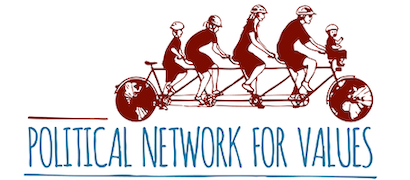(Nairobi, Nov 13 – 2019). More than half a hundred legislators from Europe, America and Africa have called in Nairobi for the ICPD25 Summit not to be used to promote abortion and gender ideology. In a statement presented by the Vice President of the Political Network for Values, Rodrigo Iván Cortés, they propose that all the efforts are to be devoted to ensuring that the basic needs of developing peoples are met.
This controversial Summit is being held on the occasion of the 25th anniversary of the United Nations International Conference on Population and Development (ICPD) held in Cairo in 1994. Many voices have denounced its use to promote the agenda of multi-million dollar lobbies, such as the International Planned Parenthood Federation, instead of promoting genuine human development.
Civil society organizations have rallied in front of the Summit facilities and leaders of Kenya’s main religious denominations, Muslim Christians and Hindus, including the Kenya Conference of Catholic Bishops (KCCB), National Council of Churches of Lenya (NCCK), Supreme Council of Kenya Muslims (SUPKEM), Evangelical Alliance of Kenya (EAK), Hindu Council of Kenya (HCK), Seventh Day Adventist (SDA), National Muslim Leaders Forum (NAMLEF), Shia Ithnasharia and Organisation of African Instituted Churches (OAIC), have denounced this agenda as harmful to their country and demand that efforts be intensified to achieve the unfulfilled development commitments made in Cairo.
Legislators have signed a Statement in support of these Faith Comunities’ claims requesting that ICPD25 Commitments to be contextualized as follows:
- Intensify our efforts for the full, effective and accelerated implementation and funding of the original ICPD Programme of Action, ensuring that implementation is guided by the original ICPD provisions calling for respect for national sovereignty and religious and cultural values and that the ICPD caveats discouraging abortion are emphasized.
- Zero unmet need for family planning with the understanding that many women need and want support and help with pregnancy and childbirth, not help to prevent pregnancy.
- Zero preventable maternal deaths, and maternal morbidities, with the understanding that abortion shall never be considered a regular method of maternal mortality prevention. Although it may be necessary to deliver a child early to save the mother, we declare that in such cases, every effort should be made to save both mother and child.
- Ensure access for adolescents and youth to human dignity education that affirms chastity and sexual risk avoidance to shield them from all of the negative mental and physical health consequences of early sex and possible unthoughtful or forced consequences of unexpected pregnancy.
Address violence against women, men, boys and girls and the harmful practices of child, early and forced marriages and female genital mutilation, by committing to strive for
- Zero violence against women, men, boys and girls, especially sexual violence and zero child, early and forced marriage, as well as zero female genital mutilation in order to realize each individual’s potential as a positive contributor to society – both socially and economically.
Mobilize the required financing to finish the ICPD Programme of Action by
- Using national budget processes, increasing domestic financing to ensure full, effective and accelerated implementation of the ICPD Programme of Action, and doing what is in our power to increase the percentage of official development aid (ODA) specifically earmarked to ensure full, effective and accelerated implementation of the ICPD Programme of Action, within the scope of the original ICPD Programme of Action with all of its caveats and protections for life and religious and cultural values.
Draw on demographic diversity to drive economic growth and achieve sustainable development
Therefore we commit to:
- Harness the demographic dividend by investing in the health, education, wealth creation and employment opportunities of young people.
- Build peaceful, and just and normal societies, where all people, including the old and the young, people with disabilities, ethnic minorities and indigenous peoples, can participate in a society where they feel valued and are able to shape their own destiny and contribute to the prosperity of their societies.
- Protect the rights of parents, recognized in the International Convention on Economic, Social, and Cultural Rights, to “ensure the religious and moral education of their children in conformity with their own convictions.” (Art. 13.(3.).)
Uphold health care in humanitarian and fragile contexts by
- Ensure the basic humanitarian needs of affected populations are met.



